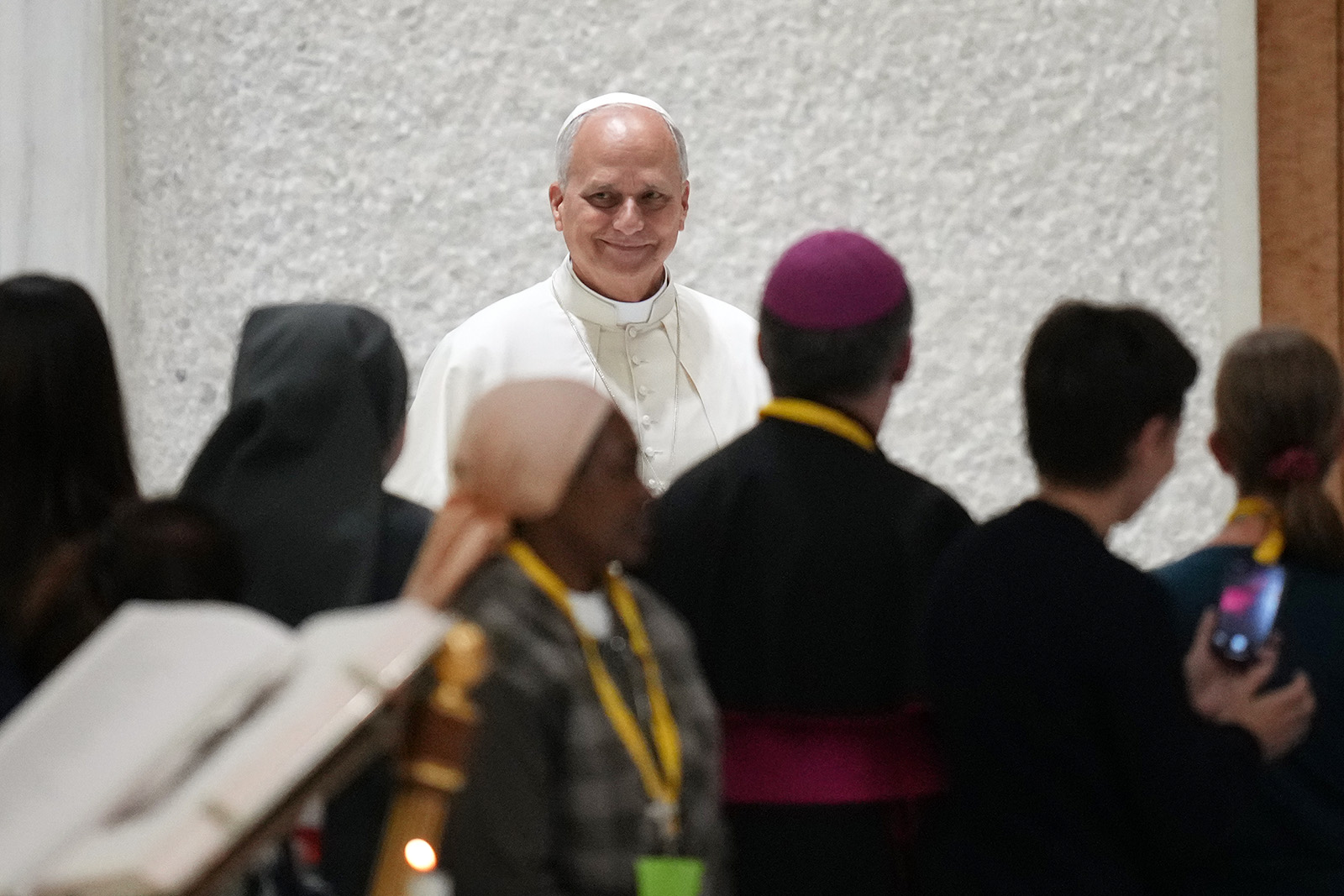
VATICAN CITY (RNS) — After Pope Francis’ death, the study groups he created to address some of the most hot-button issues facing the Catholic Church, including the role of women, polygamy and inclusion of LGBTQ Catholics, received an extension to publish their final reports by the end of the year. And on Monday (Nov. 17), the study groups published a rare update on their work, with some areas showing progress and others facing challenges.
The study groups consisting of experts, clergy and laypeople were established in March 2024, after the Synod on Synodality, a gathering of bishops and lay Catholics at the Vatican to promote a more welcoming and missionary church. Since then, the groups have worked with the Vatican on implementing decisions made at the synod.
The group charged with reflecting on women in the church consisted of members of the Vatican’s department for doctrine. They plan to publish their final report in the coming months, to be divided into three parts: the first an overview of the study group; the second presenting its findings; and finally information gathered about women in church history, current experiences of women in church leadership and the curia, theological reflections, tensions regarding “clericalism and chauvinism” and the contributions of Pope Francis and Pope Leo XIV regarding women’s roles in the church, according to the update.
The group is also charged with studying the possibility of allowing women to be ordained permanent deacons, which would let them preach the Gospel and lead baptisms, weddings and funerals, but not celebrate Mass or the Eucharist or hear confessions and anoint the sick. In the update, the group said it submitted its findings to the Second Study Commission on the Female Diaconate.
It’s unclear whether the group’s final report will include a pronouncement on female deacons. The Second Study Commission was created by Francis in 2020 and resumed its work in 2024. It reports directly to the pope.
In a wide-ranging interview with Crux in September, Pope Leo said “for the moment” he does “not intend to change the teaching of the Church on the matter” of female deacons, adding that the issue needs further discernment.

Cardinal Robert Prevost, center, poses with attendees after speaking about the diaconate at the Basilica di Sant’Andrea della Valle on Feb. 21, 2025, during the Jubilee of Deacons, in Rome. (Photo courtesy of Ellie Hidalgo)
Ellie Hidalgo, co-director of Discerning Deacons, a project that encourages reflection on the female diaconate on campuses and in dioceses, said she is “hopeful” the final report will help implement calls for more agency and recognition of women in the church that were encouraged by the Synod on Synodality.
“Hopefully, it leads to greater awareness of all the ways women can lead and participate in the church, and how churches can take steps to remove the obstacles that women still encounter when trying to be of service to the mission of the church,” she told Religion News Service.
She also she hopes the commission will “proceed in a way that is more synodal,” and “that includes listening to the experiences of local churches that already rely on de facto women deacons,” especially in the Amazon and Australia. Hidalgo suggested the study groups focus on the reality on the ground — as some areas of the world rely on women to fill ministry roles more than others — alongside theological and historical factors to “more accurately discern if the Holy Spirit is calling on the church to ordain women as deacons for the mission of the church.”
Meanwhile, the group set up to address “controversial doctrinal, pastoral and ethical issues,” including the welcoming of LGBTQ Catholics, found itself confronting “challenges that call for critical reflection,” according to the update. The group said it devoted significant time to analyzing the “paradigm shift” facing the church and the “resistance to changing mental and practical habits.”
The group opted to describe its work as covering “emerging issues” instead of “controversial” issues and said its final report will not offer “solutions that apply to all cases,” but guidelines to address the topics of homosexuality, conflicts and violence against women.

Participants attend a session of the 16th General Assembly of the Synod of Bishops at the Paul VI Hall at the Vatican, Oct. 7, 2024. (AP Photo/Andrew Medichini)
Among the groups that completed their work and already drafted a report was the one considering “pastoral challenges of polygamy.” That group’s draft document was submitted to the Vatican department for doctrine and is being reviewed by a team of experts, the group said.
The study group addressing the relationship between bishops, consecrated life and church associations said it faced “challenges,” especially in dialogue with members of the International Union of Superiors General, a network of female heads of religious congregations. The group promised to promote “further listening,” especially with female superior generals.
And a study group made progress on the issue of selecting bishops, it said, but has yet to discern the judicial function of bishops and the structure of their visits to the Vatican. The group listened to papal representatives, executive personnel from international companies, presidents of episcopal conferences and several laypeople, gathering 25 voluntary contributions. Overall, the group said it would reinforce the role of laypeople and bishops in episcopal appointments.
The group focusing on relations with Eastern churches said it will address the issue of pastoral care for Eastern faithful in the diaspora, after establishing its role in relation to a study group on ecumenical relations, which worked with experts and organizations to reflect on papal authority and the rise of nondenominational and revival movements.
The groups on addressing poverty and on the digital environment said they will publish their findings in time.
And two additional groups were established in July — one on liturgy and another on the role of bishops’ conferences. Both have only recently started their work, and the group on bishops’ conferences is still establishing its membership.
